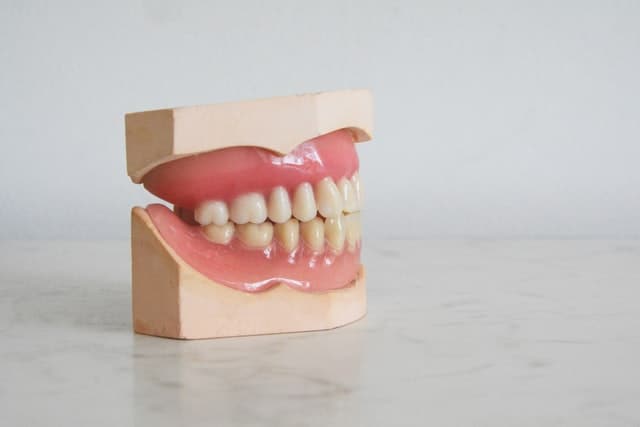Around 10% of people (and up to 15% of children) experience bruxism – or the grinding of teeth and clenching of the jaw at night on a regular basis. The major consequences of bruxism are headaches and grinding noises, which tend to bother those sleeping closeby or in the same bed. Some people with bruxism also report orofacial pain, though scientists cannot pinpoint the exact link between the two. After a night of heavy bruxism, people can wake up with temporomandibular disorders and pain in the muscles used to chew. What causes bruxism, and what steps can you take to reduce the impact of this habit?
Hereditary And Other Causes
The occurrence of sleep bruxism (SB) seem to have a hereditary component, with studies showing that the presence of this habit in blood relatives tends to be high. Additional causes can include stress, age (it is more common in children and tends to go away by adulthood), hyperactivity, taking some psychiatric medications, smoking and drinking caffeine. Bruxism is also linked to specific disorders such as dementia, epilepsy, sleep apnea, and ADHD.
The Results Of Bruxism On Your Oral Health
In addition to producing pain and discomfort, bruxism can also cause oral problems. As teeth grind against each other, they can become worn down and sensitive. In severe cases, excess movement can even lead to broken teeth, broken fillings, and on some occasions, tooth loss. It can also cause gums to recede, cause teeth to shorten, and damage the bone structure of the jaw, causing pain and even facial changes.
What Help Is Available?
The most pressing issue for many people experiencing bruxism is how to ameliorate jaw pain. Those with mild to moderate bruxism may notice that the sides of their face are painful and tight. To loosen the jaw area, they can undertake daily exercises, which include performing stretches, tucks and resistance exercises. The relaxed jaw stretch, for instance, involves placing the tip of the tongue against the back of the front teeth while you lower your jaw and move your lower and upper teeth far apart in a relaxed fashion. Other approaches to relax the muscles include massage, applying hot or cold compresses to areas of pain, and battling daily stress via natural yet powerful and proven methods such as yoga and mindfulness meditation.
Protecting Your Teeth
Your teeth will also need protection when you sleep. This can be achieved through the use of mouth guards, made from acrylic or soft materials. You should get a personalized one made at your dentist’s office to ensure that the guard stays in place throughout the night. In cases in which teeth are severely damaged, meanwhile, your dentist may recommend the application of crowns so as to improve chewing ability.
Bruxism affects around 10% of adults, and in severe cases, it can impact a person’s oral health and cause pain and discomfort. In some cases, pain can be reduced through exercises and the use of a mouth guard. If teeth become worn down by years of grinding, however, then restoration and the use of crowns can help restore aesthetic appeal and function.
Throughout the year, our writers feature fresh, in-depth, and relevant information for our audience of 40,000+ healthcare leaders and professionals. As a healthcare business publication, we cover and cherish our relationship with the entire health care industry including administrators, nurses, physicians, physical therapists, pharmacists, and more. We cover a broad spectrum from hospitals to medical offices to outpatient services to eye surgery centers to university settings. We focus on rehabilitation, nursing homes, home care, hospice as well as men’s health, women’s heath, and pediatrics.








